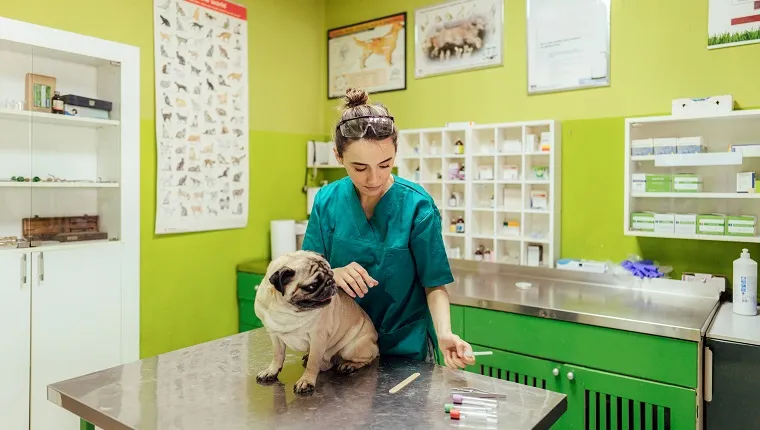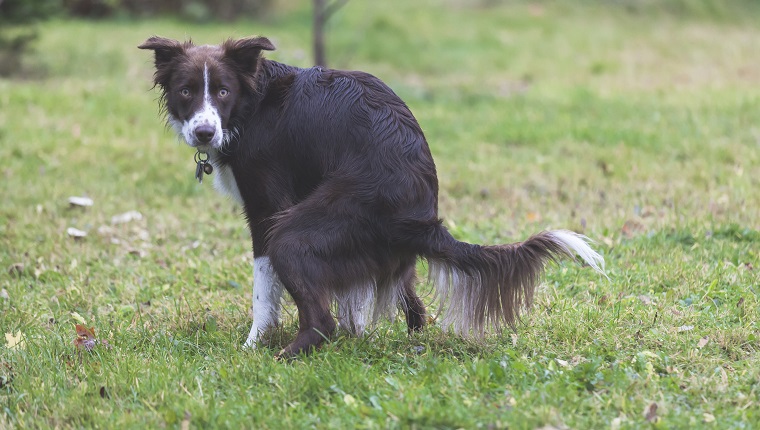Clostridial enterotoxicosis in dogs is a medical condition that can bring on a bout of diarrhea and other intestinal problems.
The condition is caused by a bacteria known as Clostridium perfringens, which can be contracted from raw meat, rotting vegetation, and even other dogs.
If you see signs that your dog might be suffering from a bacterial infection, then you must consult your veterinarian for a proper diagnosis and advice. Here’s what you should know about the symptoms, causes, and treatments of clostridial enterotoxicosis in dogs.
Symptoms Of Clostridial Enterotoxicosis In Dogs
Clostridial enterotoxicosis in dogs can bring on a number of symptoms. Some of the most common symptoms include:
- Diarrhea
- Diarrhea with blood present in it
- Vomiting
- Abdominal pain
- Difficulty defecating
- Flatulence
- Defecating more frequently than usual
Causes Of Clostridial Enterotoxicosis In Dogs

The cause of clostridial enterotoxicosis in dogs is a bacteria called Clostridium perfringens. Some of the ways that a dog might come into contact with the bacteria include:
- Eating raw meat
- From rotting vegetation
- From other infected dogs
Additionally, stress, dietary changes and having a higher than normal pH level in the intestine can also be contributory factors to developing the condition.
Veterinary Treatments
If you suspect that your dog is suffering from clostridial enterotoxicosis, then your veterinarian will want to carry out a full physical examination of your canine. They’ll conduct comprehensive blood tests, as well as urine and stool tests.
Additionally, your vet will want to ask about any recent events or circumstances where your dog might have come into contact with the bacteria that can cause the condition.
When it comes to treatment, your dog may need fluid therapy if they’re particularly dehydrated. Beyond that, vets can generally prescribe oral antibiotics to treat the condition.
As always, if your vet prescribes your dog any medicine, then it is vital that you stick to the precise dosage and frequency instructions along with completing the full course of treatment.
In general, switching to a higher fiber diet and adding probiotic supplements to your dog’s mealtimes can also help them recover.
Has your dog ever caught clostridial enterotoxicosis? Did your vet suggest any dietary changes to help deal with it? Then tell us all about it in the comments below.









